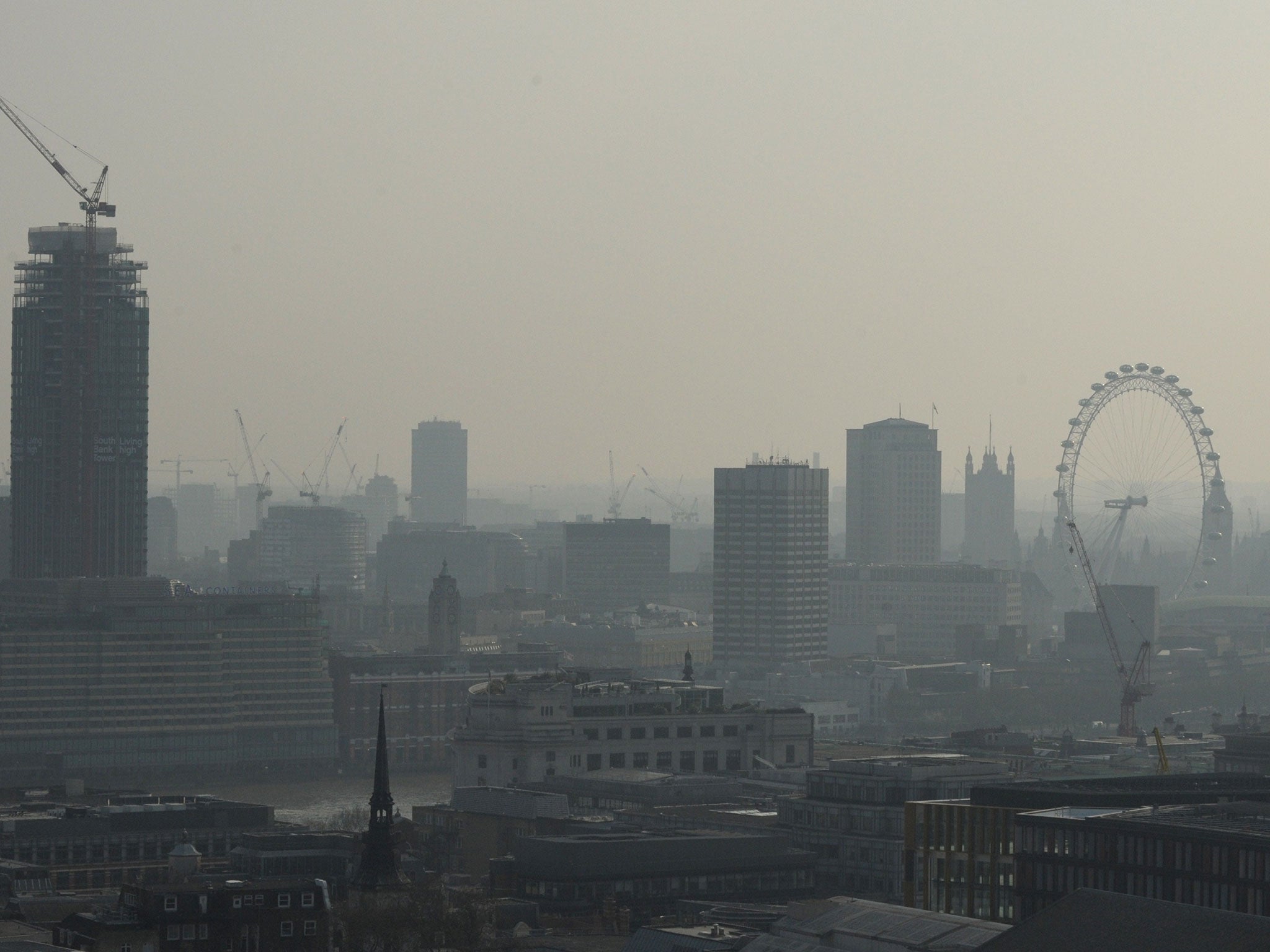Diesel fumes ‘biggest health catastrophe since Black Death’ as London exceeds yearly air pollution levels – in eight days
Campaign groups are calling on the Government to do more to tackle 'breathtaking' air pollution levels

Your support helps us to tell the story
From reproductive rights to climate change to Big Tech, The Independent is on the ground when the story is developing. Whether it's investigating the financials of Elon Musk's pro-Trump PAC or producing our latest documentary, 'The A Word', which shines a light on the American women fighting for reproductive rights, we know how important it is to parse out the facts from the messaging.
At such a critical moment in US history, we need reporters on the ground. Your donation allows us to keep sending journalists to speak to both sides of the story.
The Independent is trusted by Americans across the entire political spectrum. And unlike many other quality news outlets, we choose not to lock Americans out of our reporting and analysis with paywalls. We believe quality journalism should be available to everyone, paid for by those who can afford it.
Your support makes all the difference.Diesel exhaust fumes are causing the biggest health catastrophe since the Black Death, a campaign group has claimed, as new figures show air pollution limits for the whole year have been breached in just eight days in London.
European Union limits demand that maximum hourly nitrogen dioxide (NO2) concentrations are not exceeded for more than 18 hours a year – yet Putney High Street, in west London, had recorded its 19th hour breaching the limits during Friday morning’s rush hour, the London Air Quality Network said.
Oxford Street, where legal limits for the toxic gas for the whole of 2015 were breached in just two days, has almost certainly broken the limit again but the monitoring equipment is currently being repaired. Campaigners say that the Government must do more to tackle air pollution which has been linked to respiratory and heart problems.
Simon Birkett, founder and director of campaign group Clean Air in London, said it was breathtaking that toxic air pollution in the capital had breached the legal limit for the whole calendar year within the first few days of 2016. Mr Birkett also called on all the candidates in the mayoral elections to pledge to ban diesel exhausts from the most polluted areas by 2020.
He said: "Worse, several air pollution monitors have been vying for the dubious honour of recording the first officially monitored breach of the nitrogen dioxide (NO2) legal limit in the world in 2016."
He added that Oxford Street would have been first if it had not been offline, and warned that scientists said London would tend to have the highest nitrogen dioxide concentrations in the world because of its diesel pollution.
"This shocking start to the 60th anniversary year of the world's first Clean Air Act in 1956 illustrates the scale of Boris' [Johnson's] failure to reduce diesel fumes, which are the main source of NO2 at street level, and protect hundreds of thousands of people on our busiest shopping streets.
"Put simply, diesel exhaust is the biggest public health catastrophe since the Black Death”.
Alan Andrews, lawyer for ClientEarth, which announced last month it would take the Government back to court over air quality, said: "Its failure to deal with illegal levels of air pollution, which causes thousands of early deaths in London every year, is a scandal."
Additional reporting by Press Association
Join our commenting forum
Join thought-provoking conversations, follow other Independent readers and see their replies
Comments